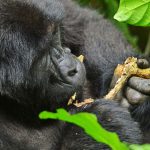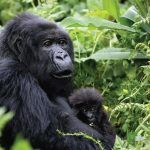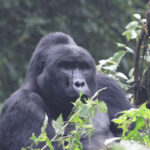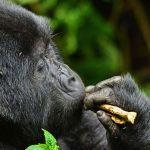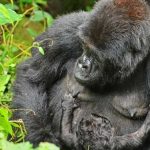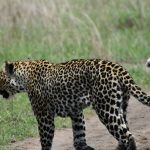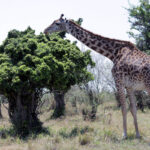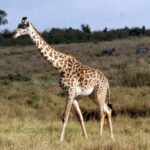Chimpanzees are great apes and naturally amazing animals that habituate in the grass savannahs and the tropical forests of Africa. They are also termed chimps and have four confirmed subspecies.
Chimpanzees and the bonobo are classified in the genus pan which was discovered by scholars who made comparisons on the fossils. These wild animals are believed to be a sister taxon to the human lineage and are believed to share around 98% of the human DNA.
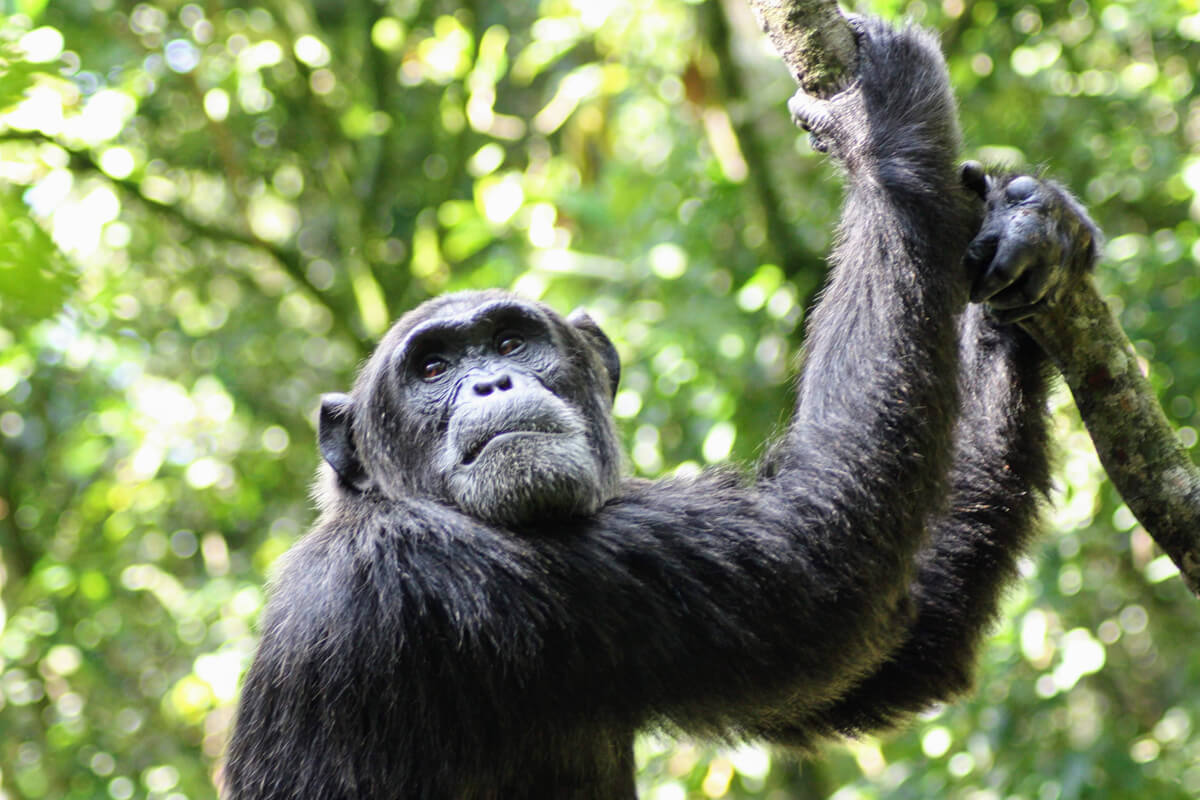
Chimpanzees are characterized by their bare face, coarse black hair; figure toes palms of the hands, and soles of the feet in appearance.
They are larger and more robust as compared to the bonobo as they weigh 40 – 70 kilograms for males and 27 – 50 kilograms for females.
Chimpanzees are wonderful creatures that create memories and experiences for tourists not only in appearance but in their creativity too. They are simply active and behave more so like human beings.
Their day-to-day lives typically rotate on governance, feeding, and protection.
These animals are omnivores and so depend on both plants and meat. They digest food to fight diseases inside their bodies.
Chimps feed on vegetarian food like fruits, leaves, flowers, bark, seeds, milk, nuts, honey, mushrooms, and palm wine with all types of meat.
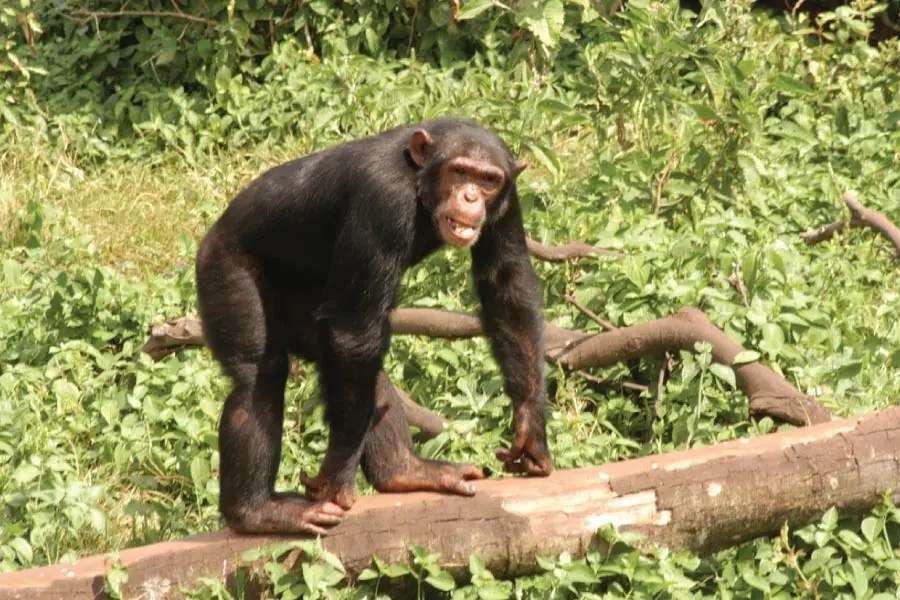
Chimps are naturally creative; they make objects for feeding, drinking, cleaning themselves, hunting, and collecting honey with fruits. Sharp tools are made for hunting and stabbing other animals for food. These tools include sharp sticks, stems, branches, leaves, and rocks thrown by them for protection.
Chimpanzees uniquely have complex social structures with family relationships. Chimps live in extended family groups of 20 -120 individuals which they still break into small interchangeable groups and timely gather.
Each of these groups has a head who has to be male and other females and infants that form a family. The male dominates and settles disputes and violence in the group.
Chimpanzees are incredibly intelligent as compared to other animals in the wild as their brainpower is compared to that of human beings. They are good at working together when making tools, good at solving problems, and communicating with complex vocals. Chimps are smart at discovering in the forests.
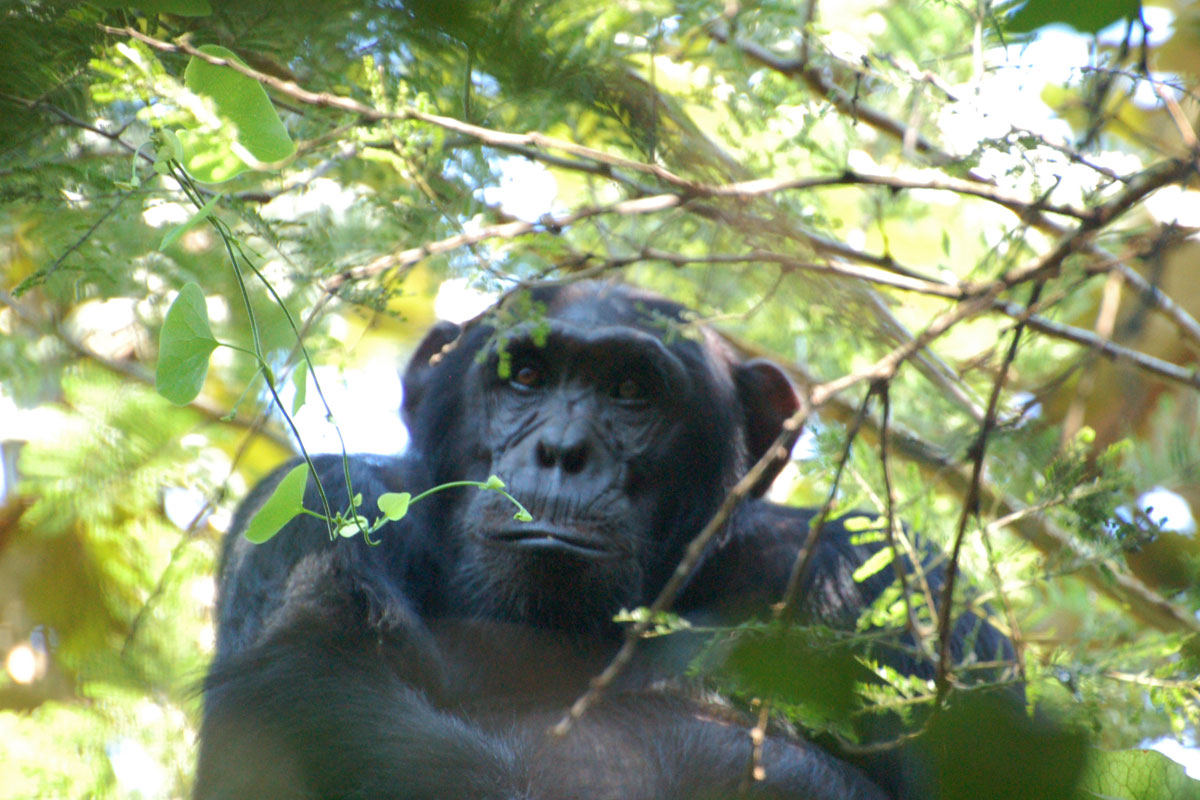
Chimps reproduce after a pregnancy that lasts for 8 months. Mothers can give birth at any time of the year and mostly give birth to a single infant that clings on the mother’s fur and later rides on her back until weaning at 3 years old. Females and infants still maintain a close relationship for several years.
Chimpanzees just like human beings have fears and threats but their greatest are habitat loss, poaching, and diseases.
Humans with an interest in poaching across Africa end up transmitting diseases and also turning habituated forests into farmlands, in the process aged chimps lose lives thus causing a great threat to the groups since it takes 14 – 15 years to replace them as breeding individuals.
Such diseases may include cerebral infarction, pulmonary arterial hypertension, diabetes, and obesity. However, mothers care tenderly for their sick and injured infants to be healthy.
Chimpanzees fear humans and so keep their distance when seeing human beings because they hunt them for the bushmeat trade, however, chimps can fight and kill people in return for the protection of their families.

